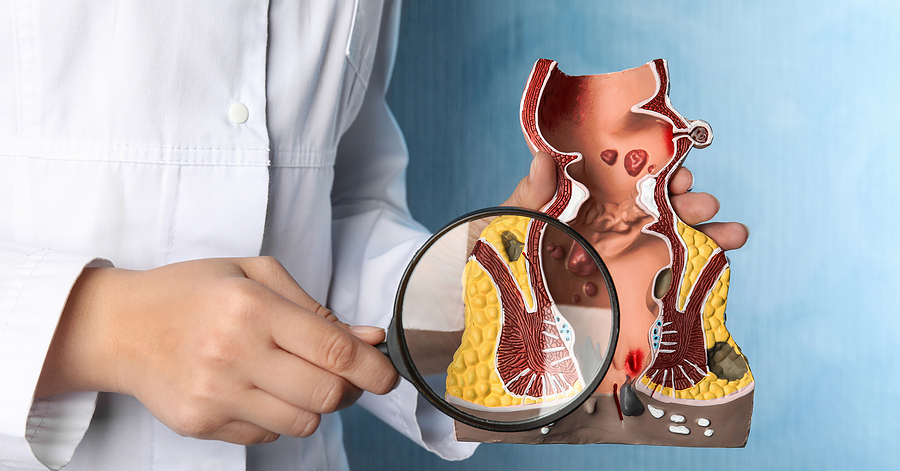Hemorrhoids FAQ: Common Hemorrhoids Questions Answered

Hemorrhoids aren't the type of thing that most people like to talk about at parties, so it can be hard to glean details from people who have been there, done that.
Until you suspect that you have a hemorrhoid problem of your own, you're probably okay with being in the dark. Once you start to experience suspicious symptoms, though, you may have a plethora of questions and no one to turn to for answers.
This hemorrhoids FAQ guide is here to save the day! We've compiled an assortment of the most common hemorrhoid questions and provided the answers that you need.
What are hemorrhoids?
Your rectum contains cushions of veins. They're always present, but sometimes they swell. When they do, the condition is usually called hemorrhoids. Some people call them piles instead.
For more information on this condition, watch the following video:
Are all hemorrhoids the same?
No, hemorrhoids can be internal or external. Internal hemorrhoids are located within the lower portion of the rectum. External ones are around the anus.
Also, not all internal hemorrhoids are the same. They are classified based on their severity. The rankings are known as grades or levels. The mildest ones are Grade I, and the most serious ones are Grade IV.
Grade I hemorrhoids are always fully contained within the rectum. Grade II and III hemorrhoids sometimes prolapse, which means they stick out of the rectum at times. If there's no way to keep a hemorrhoid inside the rectum, it moves to a Grade IV classification.
How common are hemorrhoids?
There aren't exact statistics on the prevalence of hemorrhoids since not everyone seeks treatment, but doctors do know that this condition is common.
Some estimates say that over 4% of the world's population is experiencing hemorrhoid troubles at any given time. In the U.S., doctors prescribe about 1.5 million hemorrhoids treatments every year.
Hemorrhoids are most common in people between the ages of 45 and 65.
What causes hemorrhoids?
The veins in your rectum are most likely to swell when they experience pressure. Examples of activities and circumstances that can lead to swollen hemorrhoids include:
People who are overweight or older may be more likely to develop hemorrhoids.
What are the symptoms of hemorrhoids?
Your symptoms are likely to depend on whether you have internal or external hemorrhoids.
Internal hemorrhoids are not usually painful. Some people don't even realize that they have internal hemorrhoids. Bleeding is the most common sign of a problem. You might notice blood in your toilet bowl or on your toilet paper. Also, if your hemorrhoid prolapses, you might be able to feel it.
External hemorrhoids, on the other hand, often cause noticeable symptoms. They can be itchy, sore, achy or painful. You may notice that these symptoms increase when you sit down. Like internal hemorrhoids, they can bleed. Also, you may feel a hard lump if you run your fingers over the spot.
What are thrombosed hemorrhoids?
External hemorrhoids can develop a blood clot inside. When that happens, the condition is known as a thrombosed hemorrhoid.
This is a very painful situation. It can come on quite suddenly.
If you see your doctor right away, you may undergo a drainage procedure that can provide relief. This treatment is most effective within the first 72 hours of symptom onset.
How can I get rid of hemorrhoids at home?
Hemorrhoids often clear up on their own, especially if you treat the area gently.
You can reduce inflammation and relieve irritation by soaking in a shallow tub of warm water each day. Each soak should last between 10 and 20 minutes.
Taking over-the-counter pain relievers may help you feel better. Also, you can put a hemorrhoid cream from the pharmacy on an external hemorrhoid to provide relief.
Being careful with your bathroom habits is especially important. Increase your water and fiber intake to keep your stool soft. You may need to take an over-the-counter laxative as well. Sit on the toilet only for short stretches, and don't strain. After passing stool, cleanse carefully using wet wipes instead of regular toilet paper.
When should I see a doctor about hemorrhoids?
If you're experiencing discomfort or pain that makes everyday activities difficult, schedule an appointment with your doctor. Your healthcare provider can weigh in on whether it's time to move beyond home remedies to take care of your issue.
Also, if you continue to experience symptoms for more than a week, schedule an appointment to get it checked out. Rectal bleeding is especially noteworthy. It can be caused by a variety of conditions, so it's smart to get an accurate diagnosis.
How does a doctor diagnose hemorrhoids?
Your doctor will take a look at your anus and rectum to determine whether you have hemorrhoids. He or she may use a gloved finger to feel for hemorrhoids. Also, the doctor may use a tool called an anoscope or a proctoscope to get a look inside your rectum.
Which hemorrhoids need surgery?
Your doctor may consider hemorrhoid surgery if your issue is complicated or recurring. Examples of times when patients need surgery include:
Not all hemorrhoids require invasive excision surgeries. Many can be treated with minimally invasive procedures, such as rubber band hemorrhoid ligation or laser coagulation.
Your Hemorrhoid Questions
After reading this hemorrhoids FAQ list, you may have a better understanding of hemorrhoids, their symptoms and their treatments. If you have additional questions, reach out to your doctor for guidance about your particular situation. For help finding a colorectal specialist in your area, check out our online provider finder.
As with all medical issues, your physician is the ultimate source as to what procedure best fits your needs. Discuss all options and get a second opinion if you have any doubts. These articles are intended to be a source of general information only.
